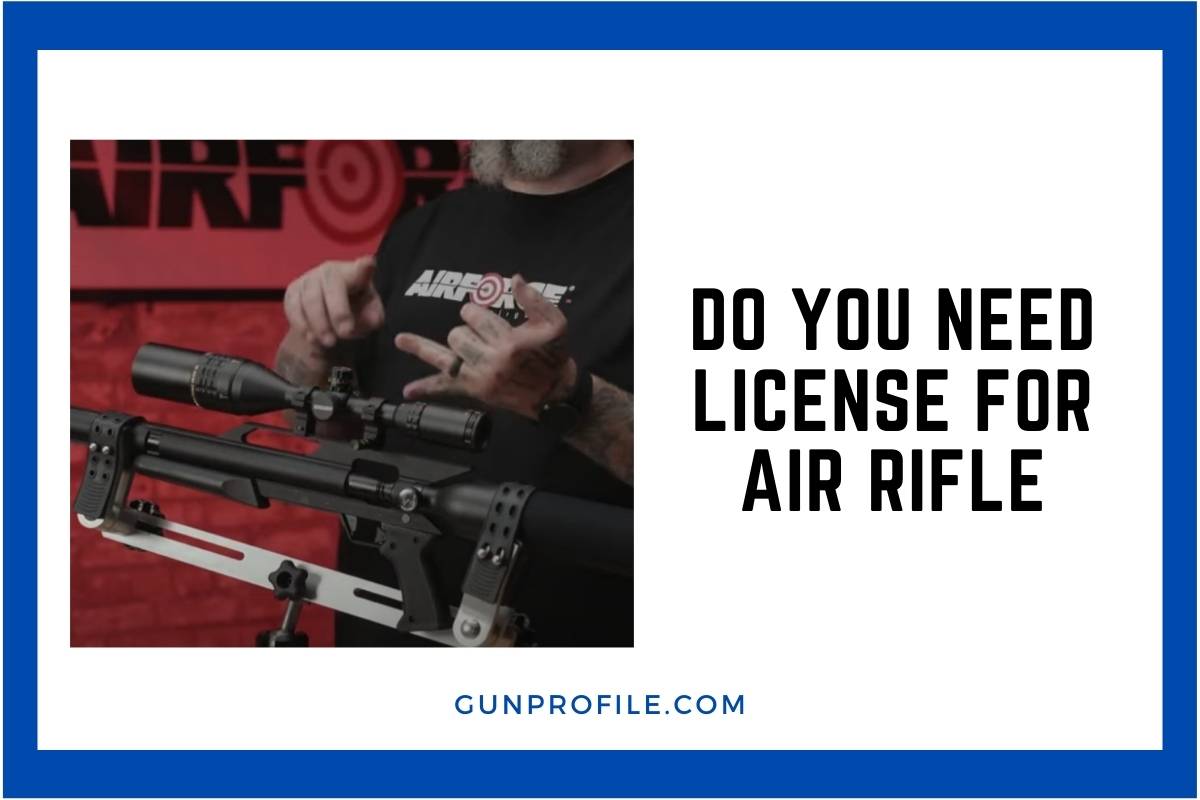Air rifles are popular for target shooting and small game hunting. Many people wonder if they need a license to own or use one.
In most parts of the United States, you do not need a license for an air rifle.
Laws can vary by state and local area though. Some places have age limits or other rules.
It’s smart to check the specific laws where you live. For example, California bans air rifle possession for those under 18 without adult supervision.
Air rifles are often seen as low-powered and not true firearms. This is why they don’t need licenses in many areas. But some air rifles are more powerful. A few states may require licenses for these stronger models.
Key Takeaways
- Most U.S. states don’t require licenses for standard air rifles
- Local laws can vary, so it’s important to check rules in your area
- Some places have age limits or restrictions on more powerful air rifles
Legal Requirements for Air Rifle Ownership
Air rifle ownership laws vary widely. Age limits and licensing rules differ between countries and even states. It’s crucial to know the specific regulations in your area.
Age Restrictions
Most places set a minimum age for air rifle ownership. In the United States, many states require buyers to be at least 18 years old. Some areas may allow younger teens to use air rifles under adult supervision.
The exact age can vary. It’s best to check local laws. In some countries, the age limit may be higher.
Retailers often ask for ID to verify age before selling air rifles. This helps ensure compliance with age restrictions.
License Necessities by Country
Licensing requirements for air rifles differ globally. In the U.S., most states don’t require a license for air rifles. They’re generally not classified as firearms.
Some countries have stricter rules. For example, Australia treats air rifles like firearms. This means licensing and registration are needed.
In the UK, air rifles under certain power levels don’t need a license. More powerful ones may require permits.
It’s important to research local laws. Rules can change, so staying updated is key.
Occasions Where Licensing Is Mandatory
While many places don’t require licenses for air rifles, some situations call for proper documentation. These mainly involve hunting and competitive shooting.
Hunting with Air Rifles
Airgun hunting laws vary by state. Some areas demand licenses for hunting with air rifles. For example:
• Larger game animals often require special permits
• Certain states mandate hunting licenses for all air rifle use
• Protected species may need additional paperwork
Hunters should check local regulations before heading out. Fines can be steep for unlicensed hunting. Some places also restrict air rifle power for hunting. Always follow the rules to hunt legally and safely.
Sporting and Competition Use
Many shooting competitions require proper licensing for air rifle use. This ensures safety and fairness. Common rules include:
• Age restrictions for young shooters
• Power limits on competition air rifles
• Proof of training or certification
Some events may ask for membership in shooting organizations. Others need specific competition licenses. Clubs often offer help getting the right paperwork. Always check event rules well before competing to avoid issues.
Types of Air Rifles Subject to Licensing
Air rifle licensing requirements often depend on the power and caliber of the weapon. Some types need permits due to their higher muzzle energy or larger projectile size. Let’s look at the key factors that determine if an air rifle needs a license.
Power Output Considerations
Air rifles with higher power outputs are more likely to need licenses. Many places set a limit, often around 12 foot-pounds of muzzle energy. Rifles above this may be treated like firearms.
• Low-power air rifles (under 12 ft-lbs): Often don’t need a license
• High-power air rifles (over 12 ft-lbs): May need a license or permit
• Pre-charged pneumatic (PCP) rifles: More likely to need licensing due to higher power
The exact power limit varies by location. Some areas have stricter rules, while others are more lenient. It’s crucial to check local laws before buying or using a high-powered air rifle.
Caliber Restrictions
The size of the pellet an air rifle shoots can affect licensing needs. Larger calibers are sometimes subject to stricter rules.
Common air rifle calibers:
- .177 (4.5mm)
- .22 (5.5mm)
- .25 (6.35mm)
- .30 (7.62mm)
- .35 and larger
Larger caliber air rifles (.35 and up) are more likely to need licenses. These are often used for hunting bigger game. Some places set minimum caliber sizes for certain types of hunting.
Caliber limits can vary widely. For example, some areas restrict air rifles over .22 caliber. Others allow larger calibers but have strict power limits. It’s important to research both caliber and power restrictions in your area.
Penalties for Non-Compliance
Breaking air rifle laws can lead to serious consequences. The penalties vary by location but often include fines, legal action, and loss of equipment.
Fines and Legal Consequences
Not following air rifle regulations can result in hefty fines. The amount depends on the specific violation and location. Fines can range from a few hundred to several thousand dollars.
In some areas, violators may face criminal charges. This can lead to a permanent criminal record. Serious cases might even result in jail time.
Repeat offenders often face stricter penalties. Courts may impose larger fines or longer sentences for multiple violations.
Some jurisdictions require community service as part of the punishment. This can range from a few hours to several weeks of unpaid work.
Seizure of Equipment
Law enforcement can take away air rifles used in illegal activities. This seizure may be temporary or permanent, depending on the case.
If the air rifle is evidence in a criminal case, authorities will keep it until the trial ends. After that, the court decides if the owner gets it back.
In severe cases, the government might destroy seized air rifles. This ensures they can’t be used for illegal purposes again.
Owners may have to pay storage fees to get their equipment back. These fees can add up quickly, especially for long court cases.
Some areas allow owners to sell seized air rifles instead of destroying them. However, this option isn’t available everywhere.
Complying with Air Rifle Laws
Air rifle owners must follow legal requirements to use their guns safely and legally. Proper storage, transport, and knowledge of local laws are key.
Safe Storage and Transportation
Air rifles should be stored unloaded in a locked cabinet or safe. Keep ammunition separate. Use trigger locks for added safety. When transporting, carry the gun in a hard case.
Never leave an air rifle in a vehicle unattended. At home, store it out of reach of children and unauthorized users. Some areas require guns to be disassembled during transport.
For travel between states, check laws in each state you’ll pass through. Rules can vary widely. Always transport air rifles unloaded with the safety on.
Knowing Your Local Legislation
Air rifle laws differ by state. Some states treat them like firearms, others have few restrictions.
Check your state and local laws before buying or using an air rifle.
Many areas restrict where air rifles can be used. Shooting is often banned in city limits. Some places require licenses or permits, especially for higher-powered models.
Age limits may apply for purchase and use. In California, you must be 18 to own an air rifle. Other states have different rules.
Does New York State classify a pellet gun as a firearm?
New York State does not classify pellet guns as firearms. They fall under a separate category of “air guns.” This affects how they are regulated and sold.
In NYC, pellet guns are treated more like firearms for legal purposes.

